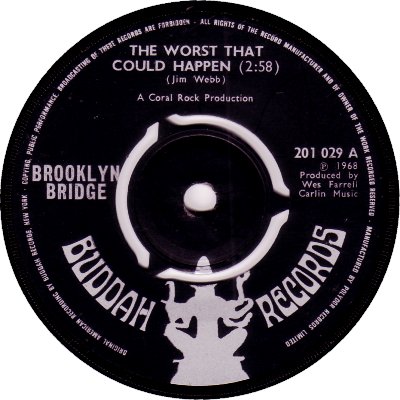
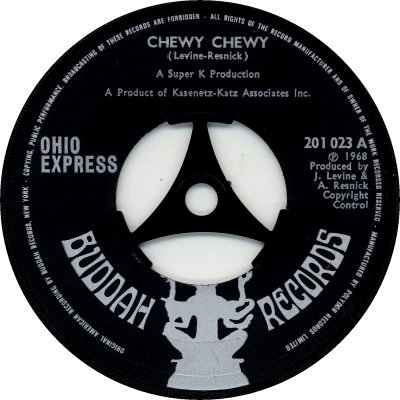
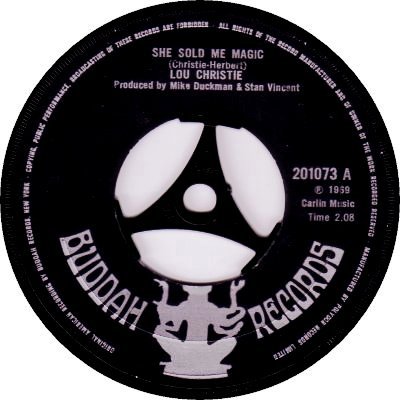
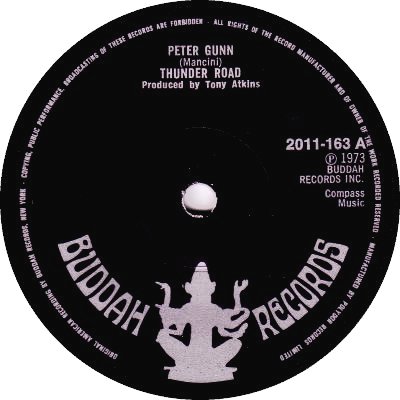
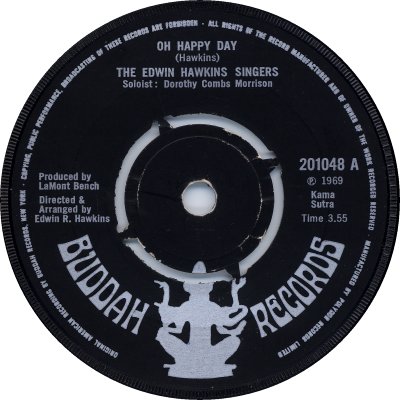
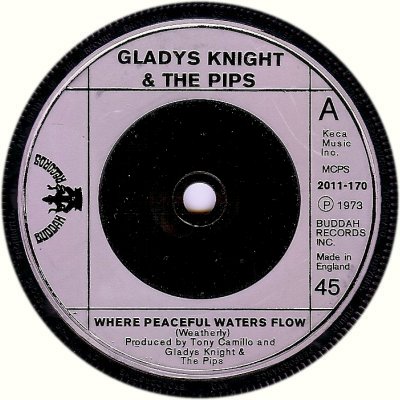
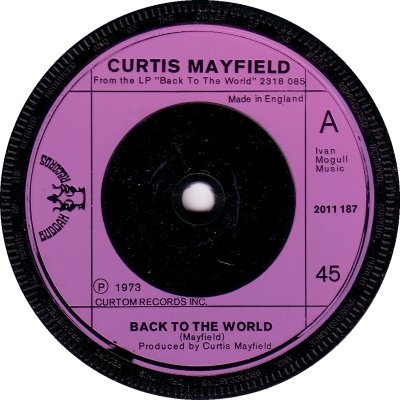
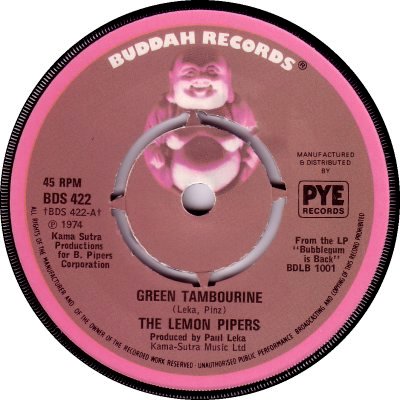

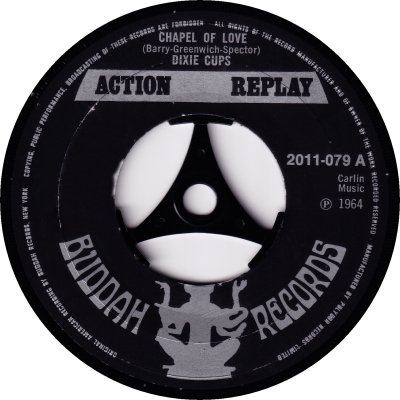
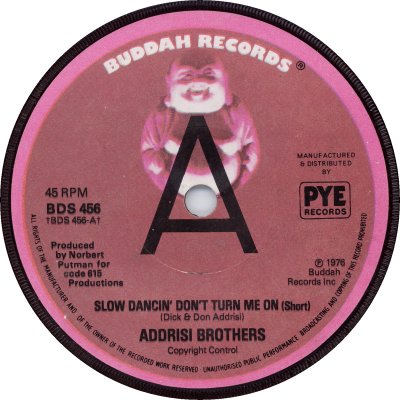
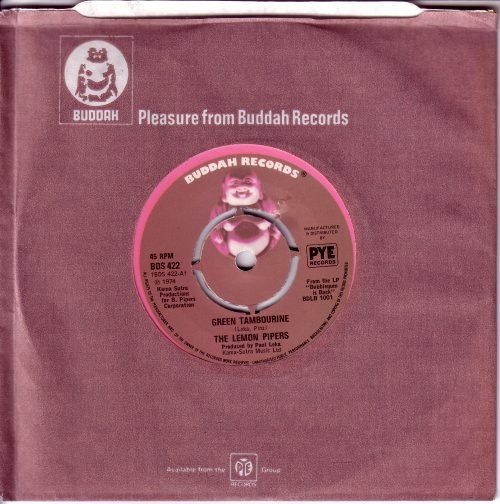
American. Buddah was formed in 1967 by Art Kass as an offshoot of Kama Sutra Records; according to 'Record Retailer' of the 7th of February 1968 the name was deliberately misspelled in order to avoid offending religious sensibilities. Record executive Neil Bogart was brought in, as were producers Jeff Katz and Jerry Kasenetz; the result was the birth of Bubblegum Pop, via the Ohio Express, the Lemon Pipers, the 1910 Fruitgum Company, etc. Buddah continued to prosper in the next decade: 1970 saw the arrival of singer / songwriter Melanie; and Gladys Knight and the Pips were signed from Motown in 1973 and became the label's most successful group. From 1974 Buddah concentrated on Black music; producer Norman Connors was responsible for a string of disco hits in the late '70s. The '80s saw a tailing-off of the label's success, however, and it was sold in 1986.
In Britain, Buddah product was initially issued on Pye International, as Kama Sutra had a licensing agreement with Pye at that time; the Buddah label as such only made its appearance in September 1968, when it moved from Pye to Polydor with its parent ('RR', 4th September). According to 'RR' of the 5th of March 1969, Kama Sutra had plans to develop Buddah in Britain: it intended to open offices here, under president Artie Ripp, and hoped to sign British acts rather than just push American ones. In the event it did release some British product, but the vast majority of items in its catalogue were American. The relationship with Polydor was sufficiently amicable for Buddah to renew its contract, which it did in April 1971; the renewal was for three years, with a possible one-year extension. The article stated that the new agreement might allow Buddah to place with Ember any records that Polydor didn't want, and that a sub-licensing deal was being negotiated with that company ('RR', 24th April), but nothing seems to have come of that. In the event the option of the extension was not taken, and Buddah moved to Pye in the summer of 1974, again in a licensing deal. The Pye deal was renewed in 1976, and Pye's successor PRT was still handling Buddah when the label issued its last single here, early in 1984.
In its own identity Buddah appeared in three incarnations. First on the scene was a black label, which, like the American one, featured a picture of Shiva. Perforating the labels intefered with the figure somewhat (1), while on factory-dinked records it lost most of its head (2); solid-centred singles were unaffected (4). The only change in the design of the black label came in May 1969, when the artist's name migrated from 9 o'clock to 12 o'clock (3), presumably to gain additional room; an important consideration when groups such as the Kasenetz-Katz Singing Orchestral Circus had to be accommodated. Now and again some copies of popular singles were manufactured by companies other than Polydor, resulting in 'unnatural' perforations and pressing marks - the fifth scan above, of a single with four perforations, is of a Decca pressing. A solitary single by the Dixie Cups was given an 'Action Replay' overprint as part of a series of Polydor reissues in June 1971 (10) - for the other records in the series see the 'Action Replay' page. The paper label was replaced by an injection-moulded one around June 1973, when manufacturer /distributor Phonodisc adapted that method of production for all its singles (6, 7). When Buddah moved to Pye, in the summer of 1974, a new, brown, label was introduced, which had the correct picture (8). A matching company sleeve was introduced (12), apparently the first that Buddah had had. The injection-moulded labels credited to Pye (9) are unusual and require explaining - presumably they were custom pressed by Phonodisc at a time when Pye's own presses were busy, despite the 'Manufactured and distributed by Pye Records' on the label. There were no promo labels in the Polydor years, but they were introduced after the move to Pye: they were marked in the usual Pye manner of the time, with a large black central 'A' (11).
Early Buddahs were numbered in the 201-000s; this was changed to a 2011-000 series in 1970 when Polydor adopted seven-figure catalogue numbers for all its associated labels. Pye Buddahs had numbers in the BDS-400s, with the exception of a single by Herman's Hermits, 'Train', which for some reason was given a one-off number of BDS-700. The discography below only covers the 1970s, and it has lots of gaps; some of them are down to the fact that the numbers were used for overseas-only releases. Thanks to Robert Bowes for the scan of the silver label.
('Both Sides Now'; www.bsnpubs.com)



Copyright 2006 Robert Lyons.

